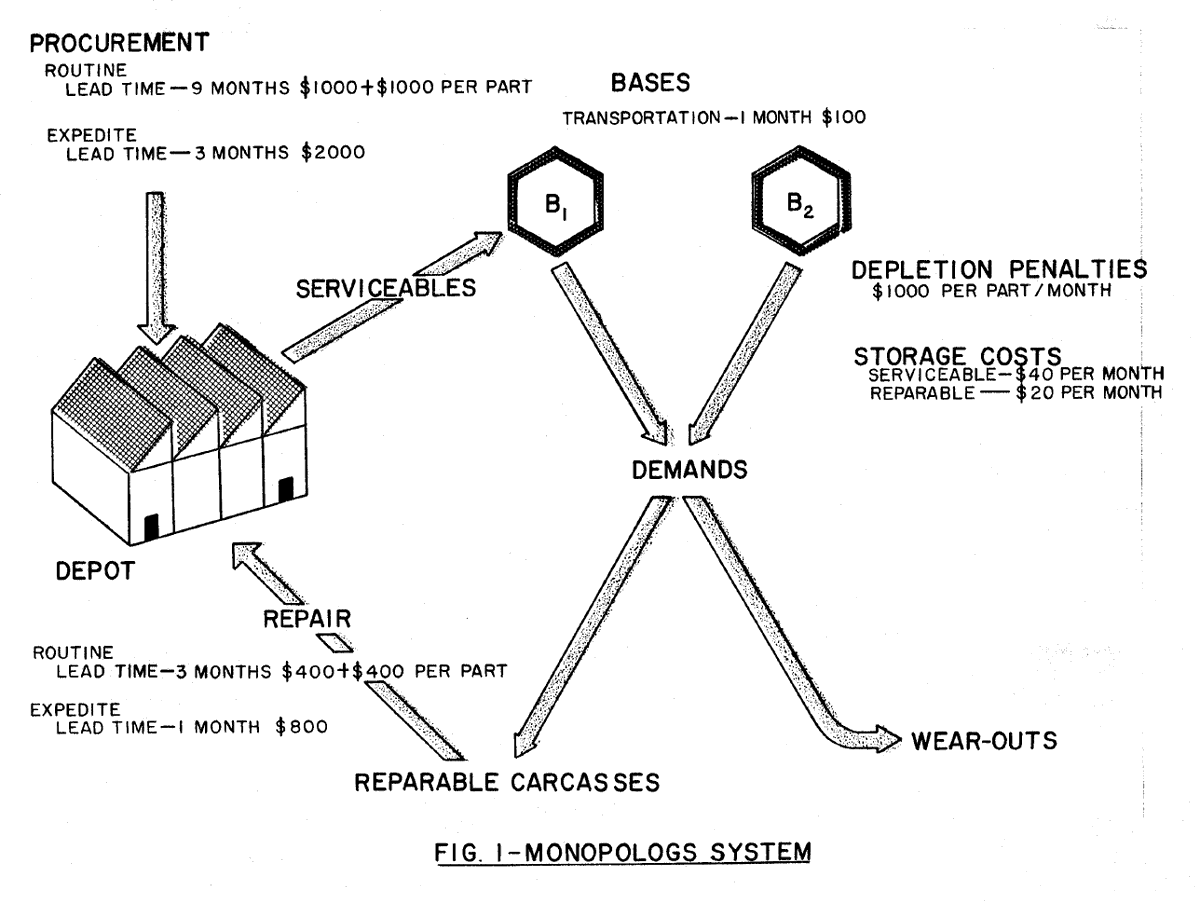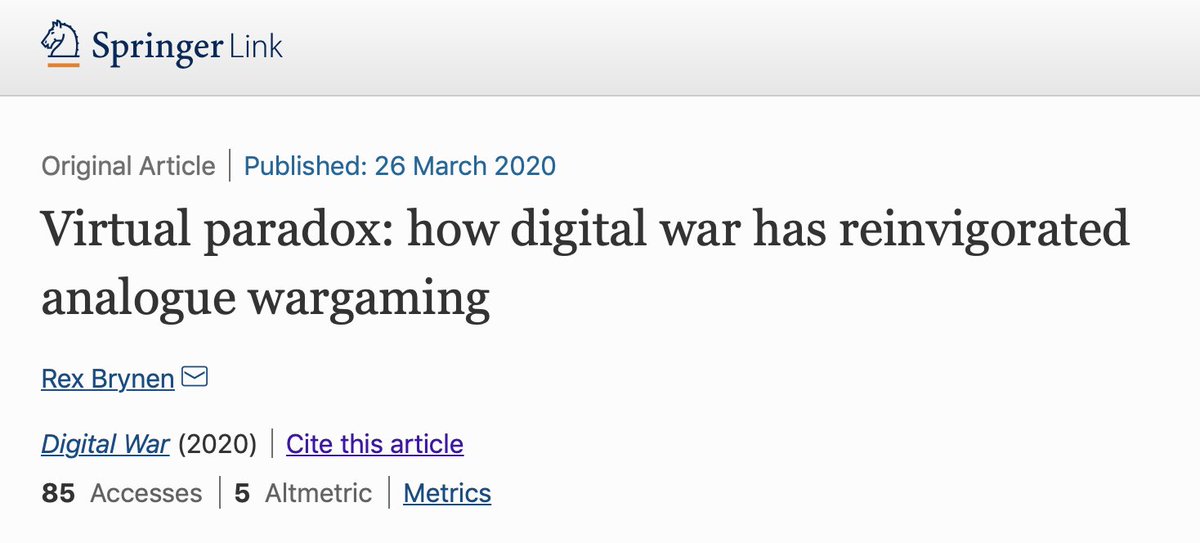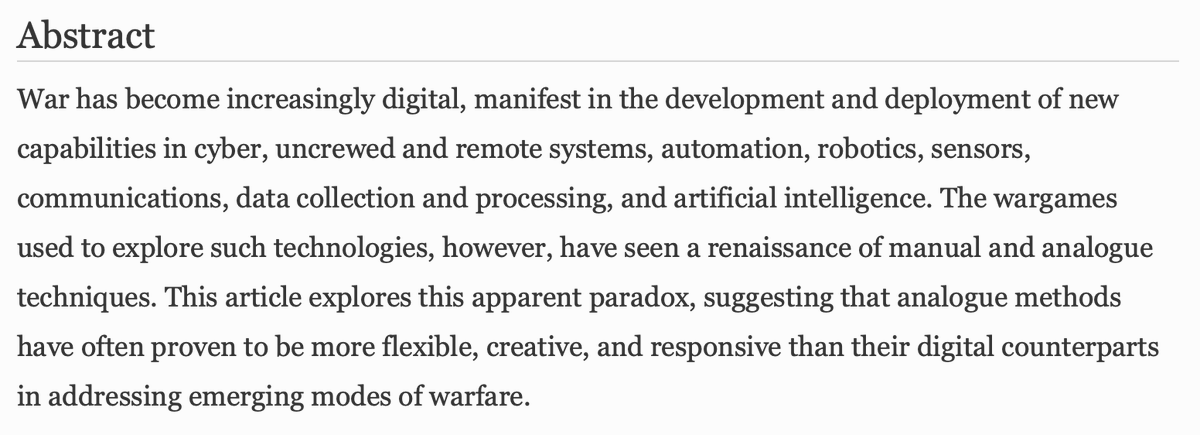
Defense analyst at IDA, President of Women's Wargaming Network, adjunct professor at Georgetown. Standard caveats. Yuna Huh Wong on LinkedIn.
How to get URL link on X (Twitter) App






 Peter covers designing, developing, playing, and analyzing wargames. He also covers integrating them with operations analysis and exercises. There is a wealth of practical advice. [2/7]
Peter covers designing, developing, playing, and analyzing wargames. He also covers integrating them with operations analysis and exercises. There is a wealth of practical advice. [2/7] 



 Agree with Rex that analog #wargaming is “more flexible, creative, and responsive than their digital counterparts” even when addressing digital issues. I have found this true in my own wargames of future AI & autonomous systems. [2/7]
Agree with Rex that analog #wargaming is “more flexible, creative, and responsive than their digital counterparts” even when addressing digital issues. I have found this true in my own wargames of future AI & autonomous systems. [2/7] 

https://twitter.com/RANDCorporation/status/1227425090192781313Some of the Q&A.